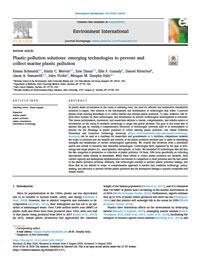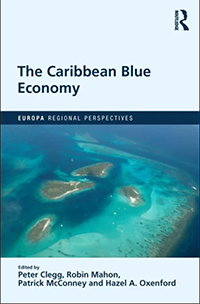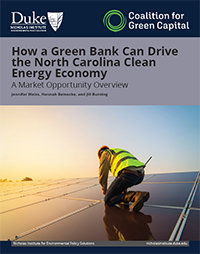Publications
Growing Options for Shrinking Cities
When people and industries leave a community, water utilities face the potential loss of revenue from departing customers and the cost and issues associated with maintaining excess system capacity.
Water systems seek to (1) ensure affordability, (2) maintain high service and quality, and (3) sustain fiscal viability; this creates a trilemma for shrinking cities that can ensure only two of the three.
A Practice-Oriented Approach to Foster Private Landowner Participation in Ecosystem Service Conservation and Restoration at a Landscape Scale
Large landscape conservation planning often requires managers to coordinate with private landowners, especially in regions like the southern and western U.S. where private landownership dominates. It is often difficult to design conservation programs that incorporate varying landowner perceptions, values, and ownership objectives. Simple and transferable methods are needed to inform the design of landscape-scale conservation and restoration programs, and we propose that this can be done by targeting ecosystem services (ES) of interest to private landowners.
Analysis of Environmental and Economic Impacts of Hydropower Imports for New York City through 2050
This study identifies conceivable scenarios for responding to the closure of IPEC and uses publicly available data to quantify the plausible ranges of direct and indirect economic and environmental costs and benefits of each scenario over the period 2021–2050.
Plastic Pollution Solutions: Emerging Technologies to Prevent and Collect Marine Plastic Pollution
As plastic waste accumulates in the ocean at alarming rates, the need for efficient and sustainable remediation solutions is urgent. One solution is the development and mobilization of technologies that either 1) prevent plastics from entering waterways or 2) collect marine and riverine plastic pollution. To date, however, few reports have focused on these technologies, and information on various technological developments is scattered.
The Blue Economy as a Global Initiative
The Blue Economy concept has been promoted as a response to a vision of rapidly increasing human activity in the ocean, labelled an “economic frontier” for an expanding population searching for new sources of growth, equipped with emerging technologies that make the global ocean and its resources more accessible. To some extent, the concept has evolved from the earlier idea of an “ocean economy,” which aimed to link a diverse set of economic activities and industries under one label, because they all in some way shared the ocean as a physical context. For this reason, the concept of the ocean economy first needs some description, and to be distinguished from the concept of a Blue Economy.
How a Green Bank Can Drive the North Carolina Clean Energy Economy: A Market Opportunity Overview
This report provides an analysis of clean energy finance opportunities that will accelerate the transition to a clean energy economy in North Carolina. Green Banks have been proven as an effective engine for job creation by leveraging public resources to catalyze private investment, which is particularly relevant in this time of high unemployment.
Addressing Financial Sustainability of Drinking Water Systems with Declining Populations: Lessons from Pennsylvania
This report focuses on the challenges facing water utilities in areas where population has declined in the Commonwealth of Pennsylvania. A total of 16 water systems were broadly analyzed, with in-depth analyses of four municipal water systems in the cities of Altoona, Chester, Johnstown, and Reading. These four cases highlight some of the overall trends and complications faced by shrinking cities.
Options on a Continuum of Competition for the Southeastern Electricity Sector
The purpose of this policy brief is to describe different ways to engender consumer choice, third-party participation, resource sharing, and regional grid management in the power sector, using existing examples from this region. It includes questions stakeholders might think through in these conversations, and fundamentally aims to educate and inform.
Assessing the Potential for Transferability of Access Rights to Enhance Sustainability in Large Pacific Tropical Fisheries
This study was conducted in order to identify options for the transferability of fishing rights in the context of Pacific Island commercial longline and purse seine tuna fisheries. The motivation for conducting this study was to provide information that can assist policy makers and fisheries managers in the region to consider if this policy instrument (enhanced transferability of fishing rights) could support achievement of the goals agreed in the Regional Roadmap for Sustainable Pacific Fisheries.
2020 Aspen-Nicholas Water Forum Water Affordability and Equity Briefing Document
This paper explores the evolution of water services in the United States. Most people have access to water, most tap water is drinkable, most dams are secure, most farms can grow more with less water, and most rivers are cleaner than they were 50 years ago. Most does not mean all. There is growing evidence that an increasing number of Americans are losing access to safe drinking water and sanitation—and others never had it at all.










